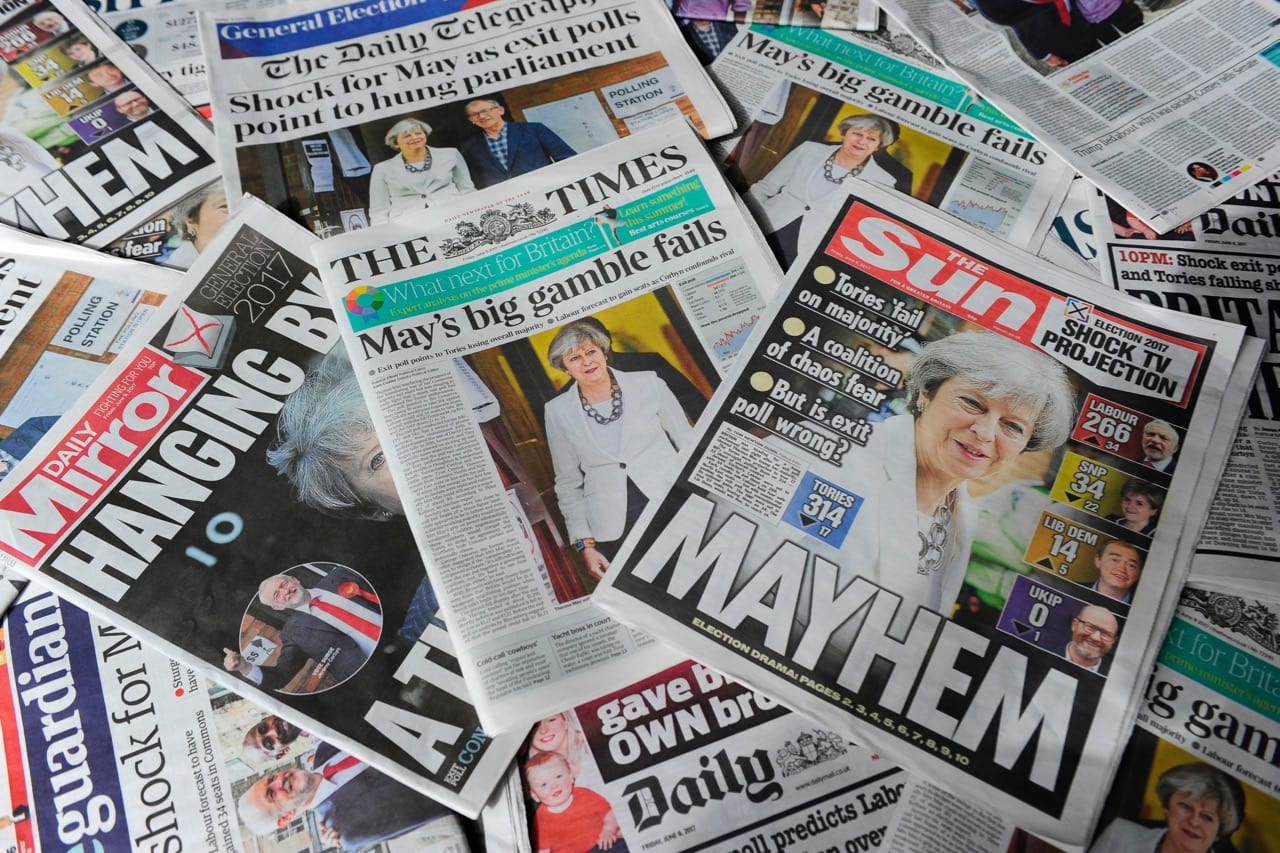"News is something which somebody wants suppressed: all the rest is advertising." Variations on this quote, originally attributed to William Randolph Hearst, have echoed around newsrooms for decades, with advertising and editorial kept separate. Nowadays, though, the line is becoming more blurred for the UK's regional media.
This statement was originally published on indexoncensorship.org on 4 January 2018.
By Tracy Bagshaw
“News is something which somebody wants suppressed: all the rest is advertising.”
Variations on this quote, originally attributed to William Randolph Hearst, have echoed around newsrooms for decades, with advertising and editorial kept separate. Nowadays, though, the line is becoming more blurred for the UK’s regional media.
And it is driving journalists away from the jobs they love. One former local paper editor told Index she bowed out after commercial influence became the last straw.
“The last 10 years have seen increasing pressure from commercial departments to not use, or minimise, any story which has the potential to upset an advertiser – or even a potential advertiser,” she said. “While working as an editor I was told, in no uncertain terms, we were not to run a court story involving an advertiser breaching health and safety legislation. And that is just one example.
“My instincts were to fight every inch of the way, but the reality was that the dice were loaded in favour of those bringing in revenue, the ad team, not those irritating journalists who believed in printing news, whatever it was and whoever it involved.”
An increasing number of media CEOs have commercial roots rather than editorial backgrounds, with publishers sometimes accused of arguing that commercial needs can override journalistic integrity because advertisers pay the wages.
Print circulation is falling – as is advertising revenue. Enders Analysis predicts that by 2019, the UK newspaper industry’s revenue will be nearly £1bn a year less than in 2011, and eMarketer’s latest UK media ad-spending forecast predicted newspapers would see their income fall by 9% in 2017.
Regional papers have a smaller pool of advertisers to draw on than their national competitors, so commercial directors are keen to court businesses in the hope they may become advertisers, or to keep their budgets on par with previous years.
Reporters complain that they spend too much time rehashing press releases with little news value, and sub-editors regularly come across “stories” on commercial events with instructions not to edit them. Often, a paid-for supplement will follow, linked to an agreement for editorial coverage.
Ian Murray, executive director of the Society of Editors, says this closer relationship is important but needs to be handled with care.
“Editors left their ivory towers a few years ago now, and any editor or news editor who doesn’t understand that the continued existence of their publication is tied to its commercial success won’t last long in the job,” he said. “But whereas it is acceptable for an editor to agree to, say, a new section on a topic that will attract or support advertising, it remains their role if not their duty to ensure commercial interests do not affect genuine news reporting.”
This is a tightrope Nigel Pickover has negotiated in his four decades in the regional press. The former editor of the Ipswich Star and the Eastern Daily Press believes editorial staff need a sixth sense regarding potentially undue influence.
“If there is a newsroom campaign or a royal wedding supplement, it’s entirely appropriate to link with colleagues to see if there are commercial opportunities. Producing newspapers and websites is an expensive business,” he said.
“The biggest danger to me – in a time of tight resources and open pages – is clever PR firms delivering well-written copy, pictures and even video into the editorial system. Again, these stories must pass muster and not be used as space fillers if they are just free puffs.”
Many PR companies, aware of the muddying of the waters, see benefits for all parties.
Maw Communications has clients including GoCompare, DPD and Virgin Money. Founder Gordon Maw says it is now common to have editorial coverage, traditional adverts, sponsorship, online links and inclusion in more general features in one managed campaign rather than dealing with separate departments.
“As amazing as your story or ad is, there’s a massive chance people will miss it. But with this sharing of media, everything can be done as mini campaigns – it can go everywhere,” he said. “It’s still about the story and the message but it works in different ways.”
But while some newsdesks are instructed to blur the boundaries, Iliffe’s new Bishop’s Stortford Independent sets firm limits. News editor Sinead Corr’s brief is to provide genuine local news which inspires confidence in both readers and advertisers.
“We are trying to be independent, and you can’t be that if you are in someone’s pocket,” she said. “Our ad reps sell on the quality of our editorial content. There are no mates’ rates, no puff promises.”
She says advertisers believe too much cross-contamination can damage their brands. “People aren’t falling for it… It’s the whole ethos of trust. Adverts are placed in a context where they have credibility by association.”
But what happens if advertisers do try to call the shots? They may demand inclusion in a story or threaten to withdraw advertising if an adverse story is printed.
This is where editors have to be strong, fighting their corner if needs be and employing that “sixth sense”, says Pickover.
It is this approach which will, ultimately, benefit both commercial and editorial sides, adds Murray.
“In my experience, and through anecdotal evidence from today’s editors, they remain committed to standing up for editorial independence and integrity. Management also, I believe, understand that a publication’s integrity with both readers and then advertisers will not survive the loss of real editorial standards.”
This is good news, but it still rings hollow in the ears of journalists such as the former weekly editor, who spoke to Index, who believes the daily struggle is still real – especially for smaller publications.
“I am sure there are papers out there which take no prisoners and run stories unfettered by the chains of the ad team – and I salute them. But equally, there are also plenty of stifled editorial teams being bent by the commercial will of the ad teams – be it not running a story altogether, or over-writing some PR puff to a page lead to please an advertiser.”



